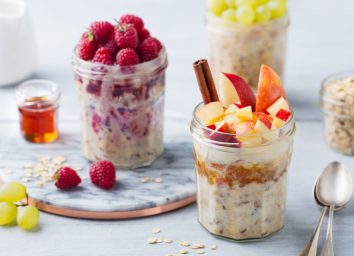21 Times You Should Choose the Generic Brand
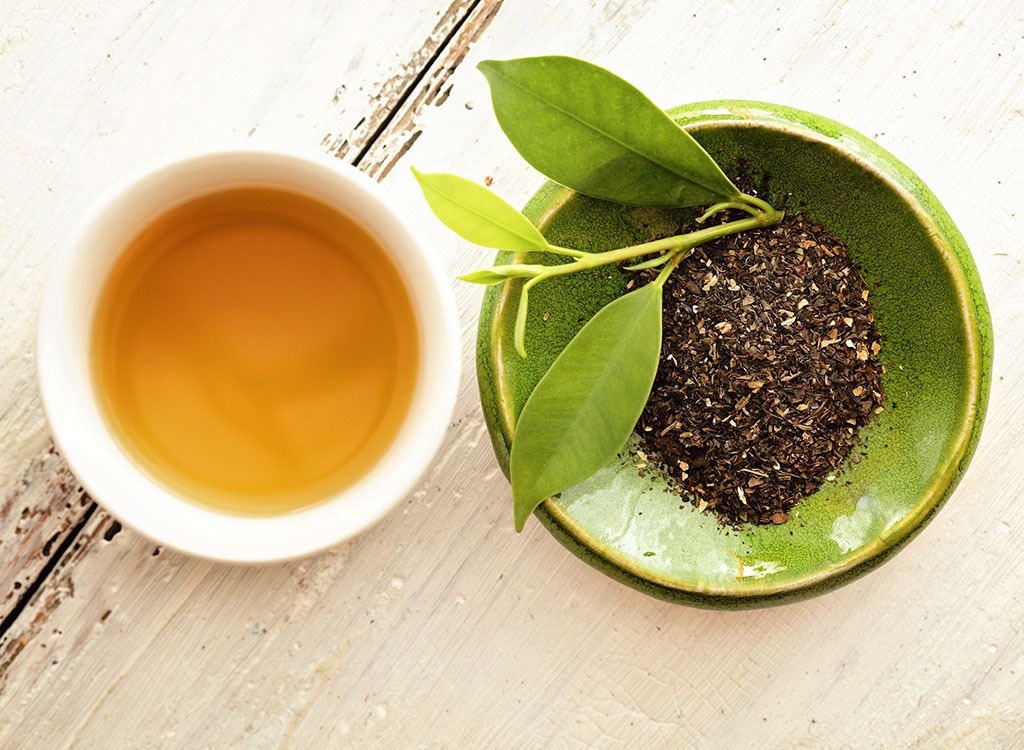
It's no secret that Americans are brand-obsessed. But while a trusted name may imply better quality or flavor (and, let's face it, the eye-catching packaging doesn't hurt either), it's not always worth paying the premium. There are a number of grocery cart items that you can buy generic with an absolutely guilt-free conscious. If anything, you should feel guilty about buying their branded counterparts because they're totally replaceable. According to Consumer Reports, trading known brands for generic will save you an average of 25 percent. Here's a look at when exactly you can choose non-branded foods—because who doesn't love saving money? Speaking of, be sure to also check out these 30 Ways to Save at the Grocery Store!
Canned Beans and Tomatoes
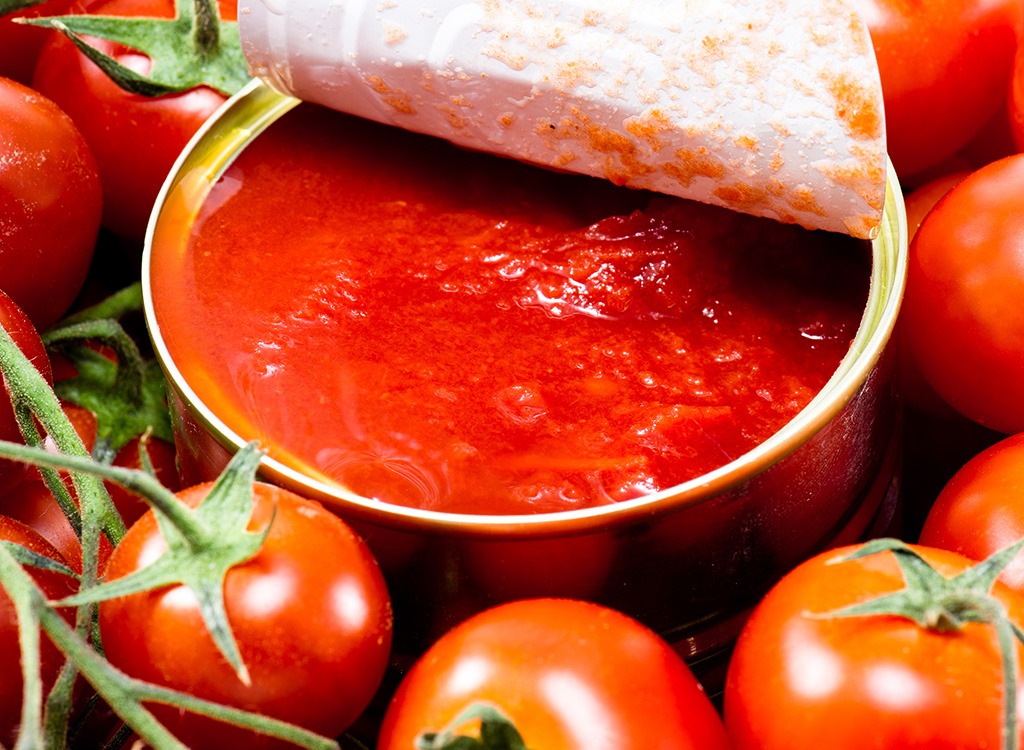
Forget the brand name when shopping for canned beans, advise The Nutrition Twins, Lyssie Lakatos, RDN, CDN, CFT and Tammy Lakatos Shames, RDN, CDN, CFT, and authors of The Nutrition Twins' Veggie Cure. They say that the most important thing to look for is low sodium levels and that they're in a BPA-free lined canned. "No matter whcih brand you opt for, you'll get a fiber and protein-packed, phytonutrient- and iron-rich bean." Ditto for canned tomatoes. It doesn't matter whether you go for generic or branded; you'll get four times the cancer-fighting lycopene compared to fresh tomatoes. Just make sure to look for an option with no salt added.
Cereals
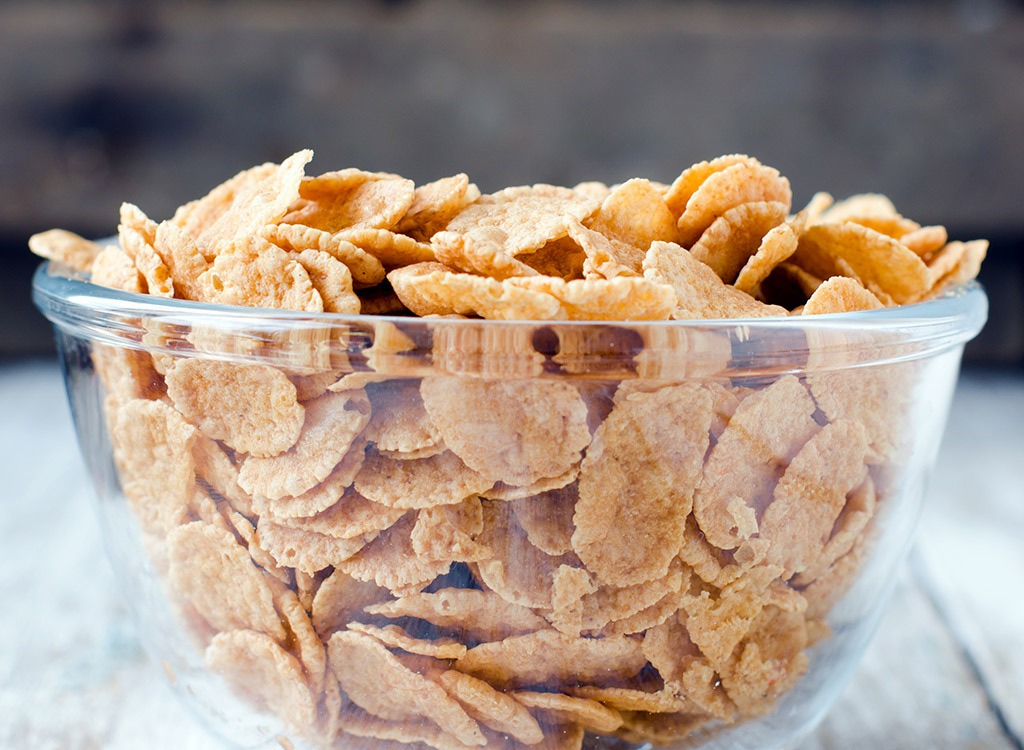
"Many cereals come in generic varieties with exactly the same ingredients," says Stacy Goldberg, MPH, RN, BSN and CEO/founder of Savorfull. This is especially true for the healthier options. (Although, there are very few of them when it comes to packaged cereals!) Some of the best options for generic cereals are plain oatmeal, bran flakes, and rice crisps. Always steer clear of these 20 Worst "Good for You" Cereals, though.
Milk
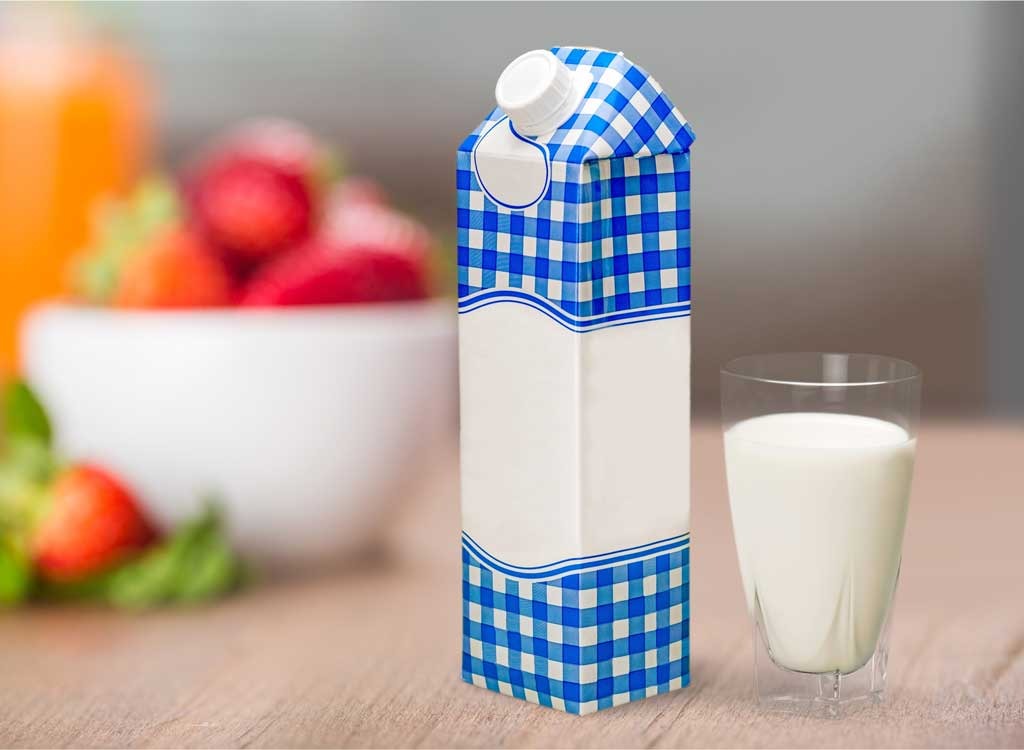
An interesting fact, according to Maria A. Bella, MS, RD, CDN, is that even organic store-brand milk tends to come from large-scale companies that sell milk to bigger brand-names as well. "The generic milk at your local supermarket may even come from a closer supplier, making it a less processed product with a smaller carbon footprint." No matter which milk you buy, it's important to look for dairy made without bovine growth hormones.
Vitamins and Supplements
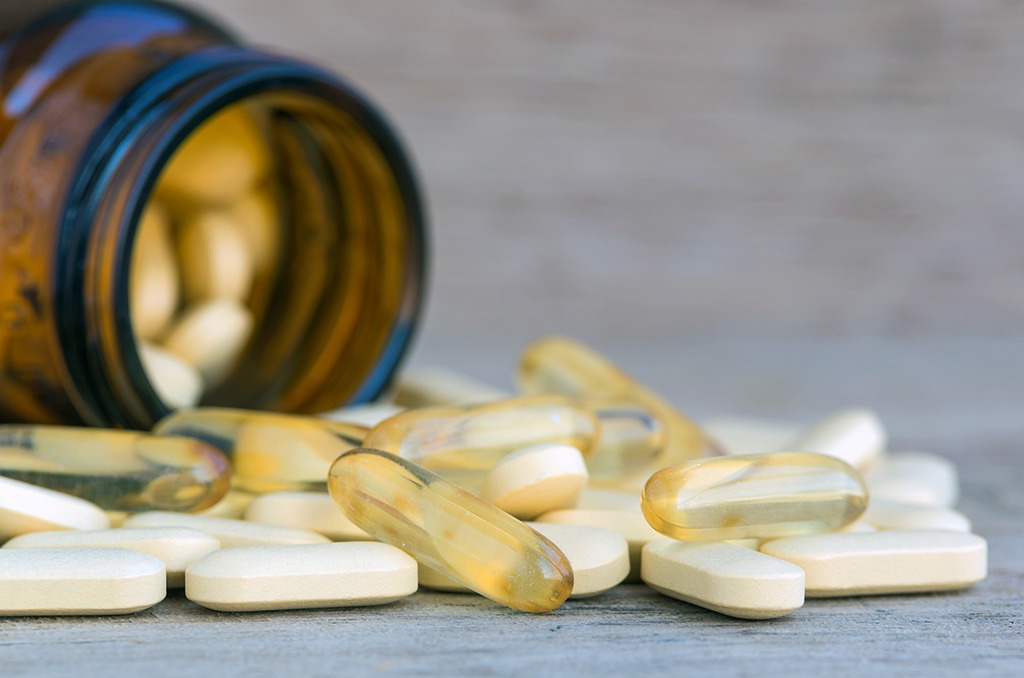
"Generic brands are just fine for probiotics and for reaching your daily vitamin requirements," says Bella. She suggests checking out the ingredients list to see what else is in your supplement and making a decision based on your individual needs. "You may need to do some research to translate ascorbic acid as vitamin C, for example. But in general, buying generic supplements is perfectly fine." Psst! Discover the 21 Things You Don't Know About Vitamins to make sure you're popping your pills safely.
Frozen Fruits
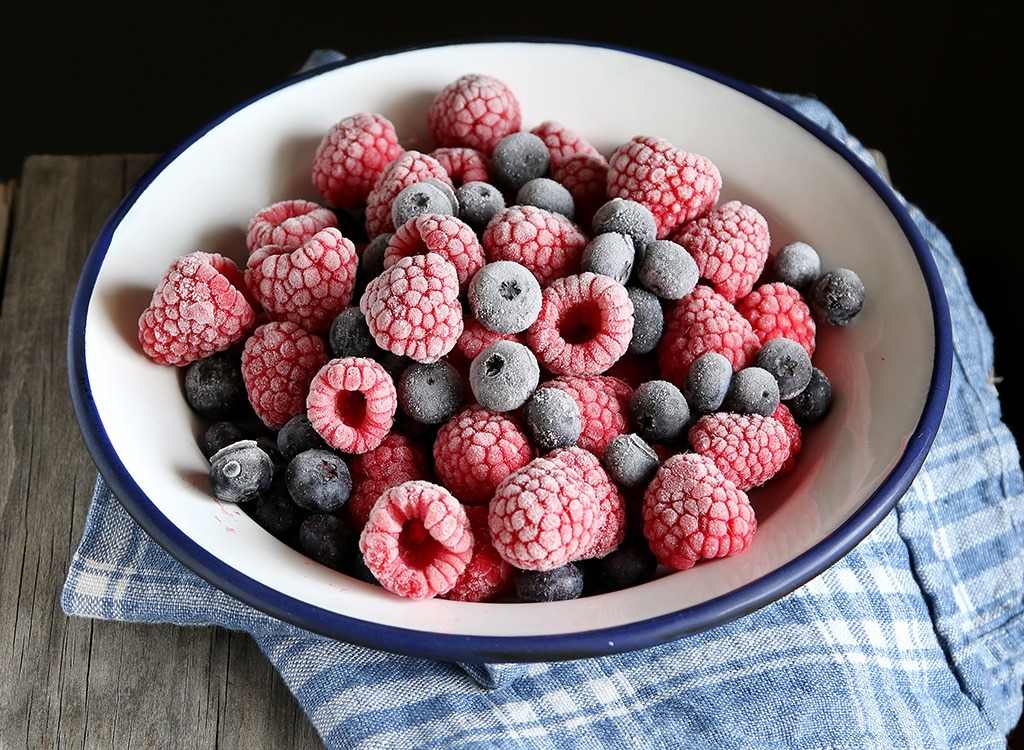
One of the best way to satisfy a sweet craving or to make a quick smoothie is by reaching for frozen fruit. They're packed with vitamins, minerals, and lots of fiber, and any generic brand of frozen fruit is perfectly fine as long as there is no added sugar. Trader Joe's has some fantastic options on this front. Do note store-brand products, like the ones at Trader Joe's, are often brand-name products in disguise. "Shopping at Trader Joe's is great for staying within your budget while still receiving a great quality product," Bella says. "Most of its store-brand items are actually from brand-name food companies that sell their product to Trader Joe's under its own brand name and Trader Joe's saves money by not advertising."
Yogurt
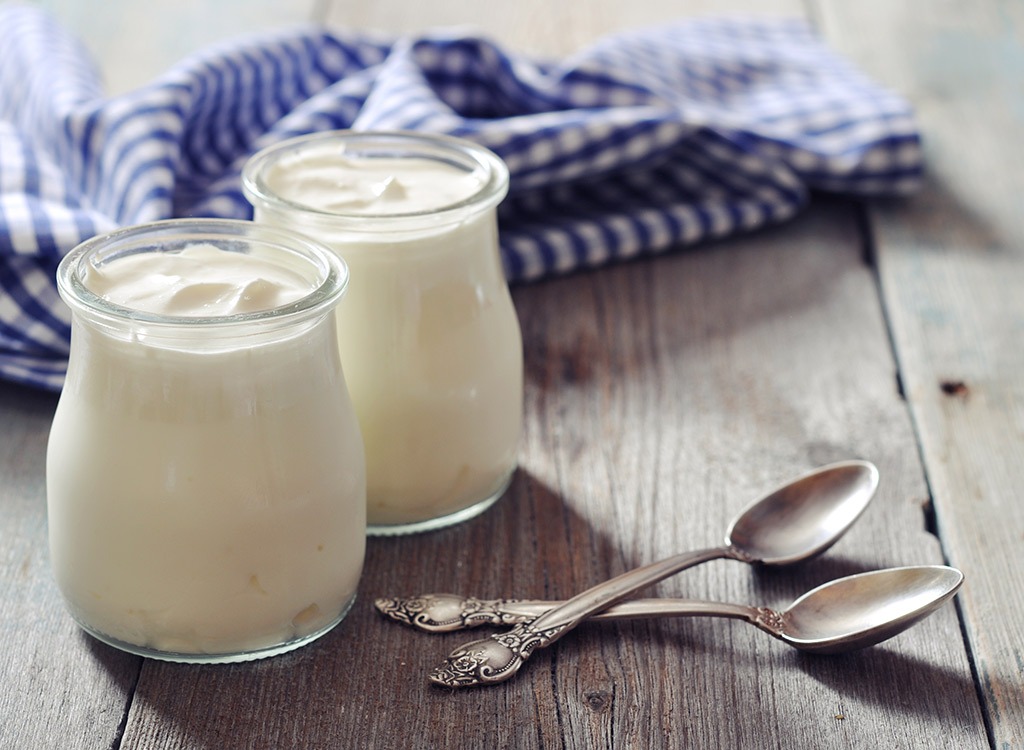
Building off the last point, generic yogurt is something you can turn to save a ton of money if you're a regular consumer. In fact, according to Bella, Trader Joe's brand yogurt is exactly the same product as Stonyfield—but there's a big difference in price. Speaking of Trader Joe's, don't miss our exclusive list of the Best and Worst Foods at Trader Joes!
Frozen Vegetables
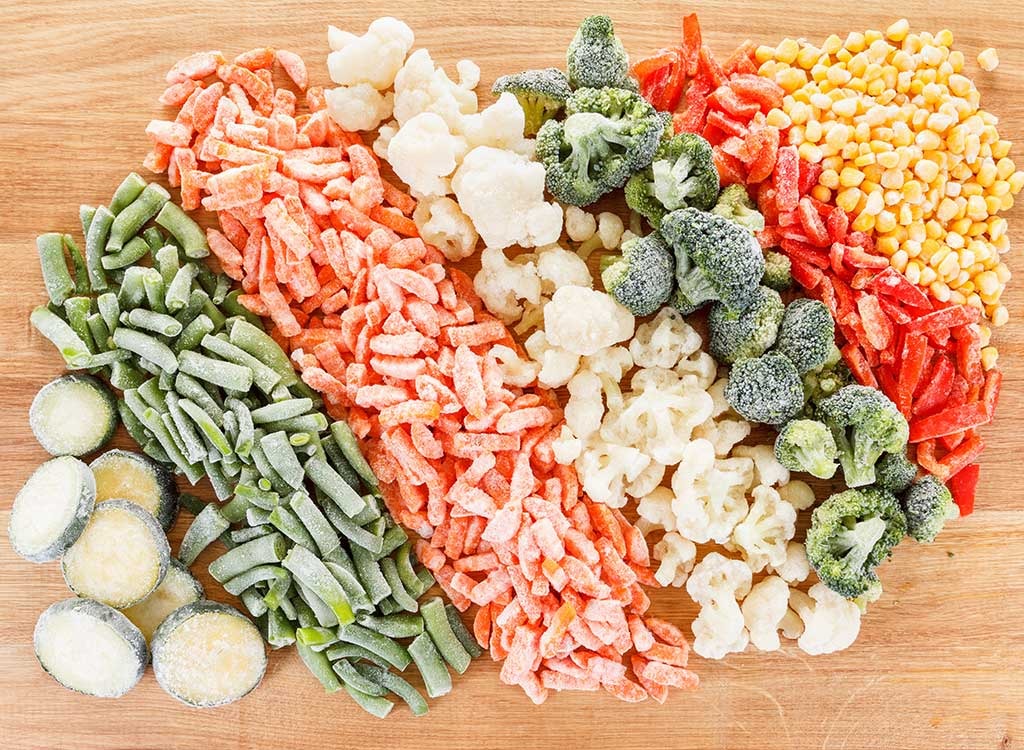
"Packed with fiber, potassium, and folic acid, all frozen vegetables have their nutrients locked in since they're picked and then immediately frozen," say The Nutrition Twins. "They're perfect to eat alongside a piece of salmon or grilled chicken." Just make sure to opt for bags with nothing other than vegetables—no sauces! (Frozen stir-fried veggies tend to be high in sodium.) Opt for 100% pure veggie, steam them, and top them with some herbs and spices for optimal nutrition.
Bananas
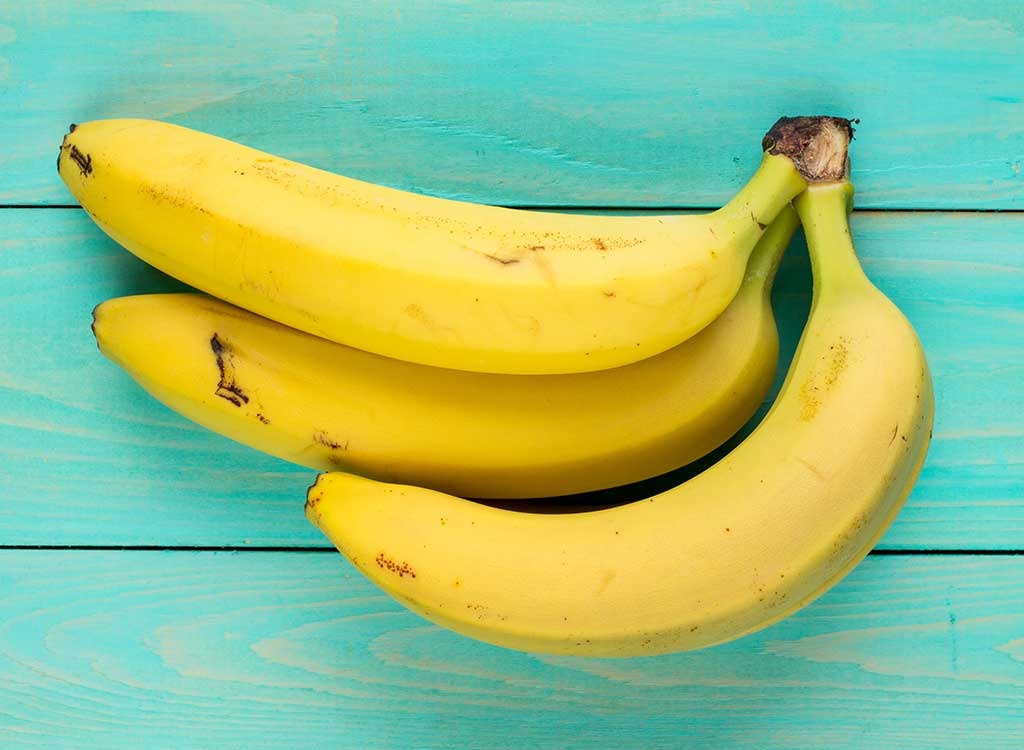
"Rich in potassium and energy-boosting carbohydrates, all bananas contain a thick skin that helps to protect against pesticides and chemicals from getting into the fruit," say The Nutrition Twins. So, feel free to load up on your corner fruit stand! Bonus: There are at least 21 Amazing Things That Happen to Your Body When You Eat a Banana.
Nut Butters
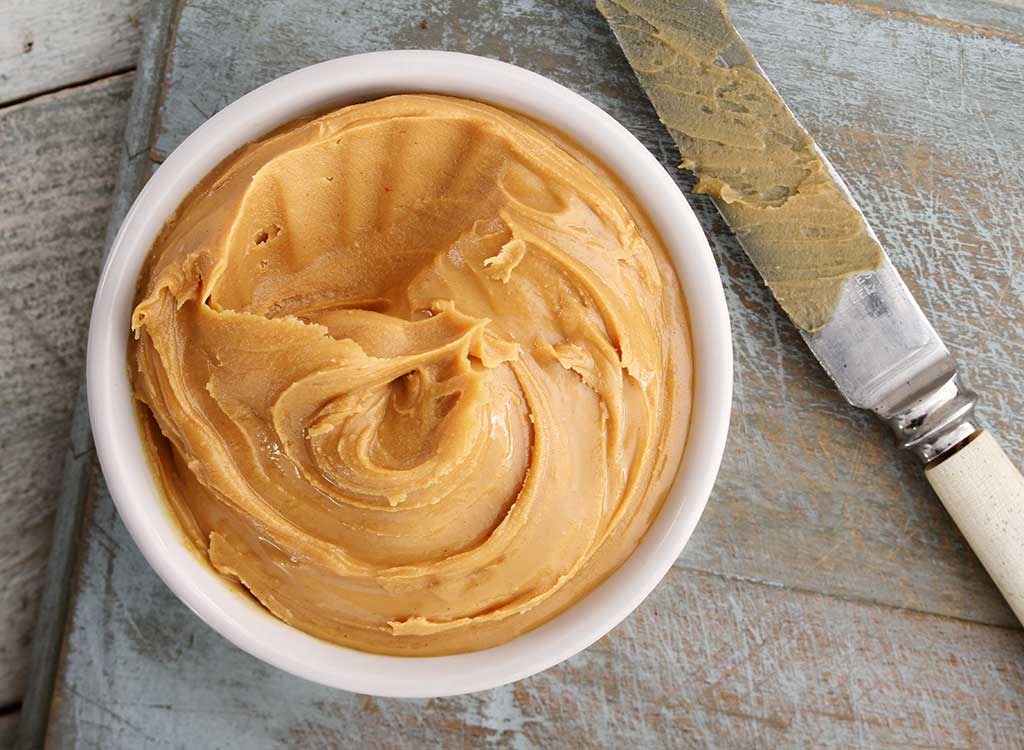
"Simply choose any all-natural nut butter (peanut, almond, sunflower, etc.) and you'll skirt the artery-clogging trans fat that's found in many popular nut butters that hydrogenate their nut butter spreads to prevent the oil from separating out," say The Nutrition Twins. "If you see a generic brand natural nut butter with the oil sitting on top, simply stir the oil in." Many branded nut butters also sneak in sugar to their ingredient decks. 365 Everyday Value Almond Butter is a great option made with no hydrogenated oils and no sugar added; there's only one ingredient: dry roasted almonds. This almond butter is also Non-GMO Project Verified.
Salt
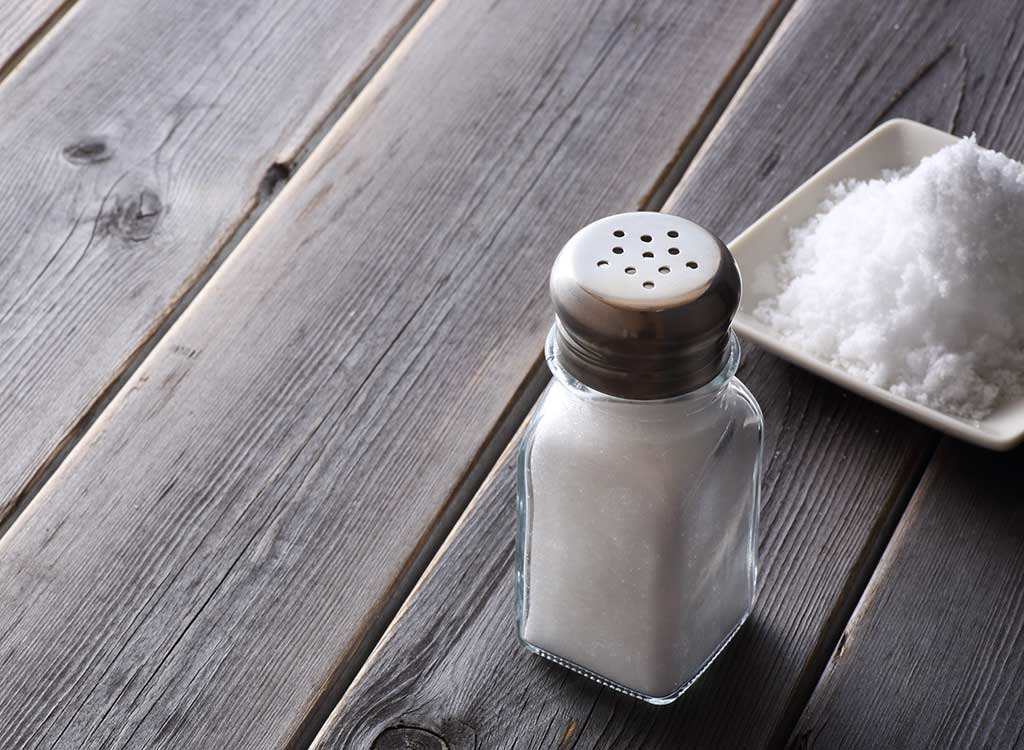
No matter the brand, all salt acts a flavor enhancer, food preservative, and it supplies 2,300 milligrams of sodium per teaspoon. "It should always be used sparingly since the limit is 2,400 milligrams of sodium per day and most people get up to three times as much as this. Salt increases the risk of high blood pressure, heart attacks, and strokes," caution The Nutrition Twins. While there might not be a difference between generic and store-brand salts, there is a difference in the type of salt you opt to buy. The best salt from a wellness perspective is unrefined sea salt.
Green Tea
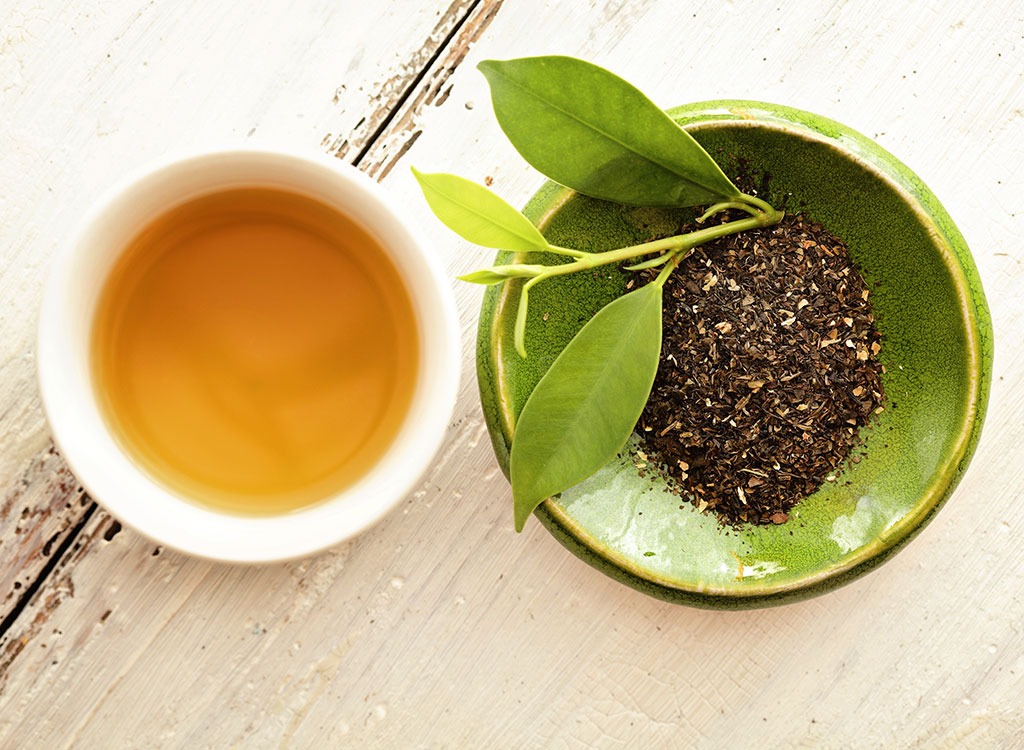
"Whether you choose a brand name or generic, green tea ranks among the top of the list when it comes to antioxidants," say The Nutrition Twins. "And all green tea contains EGCG, which is being researched for its ability to speed up metabolic rate. Green tea is great to drink if you are studying for an exam or preparing for an important presentation, as it contains the amino acid theanine which brings on a mental calmness, yet alertness."
Olive Oil
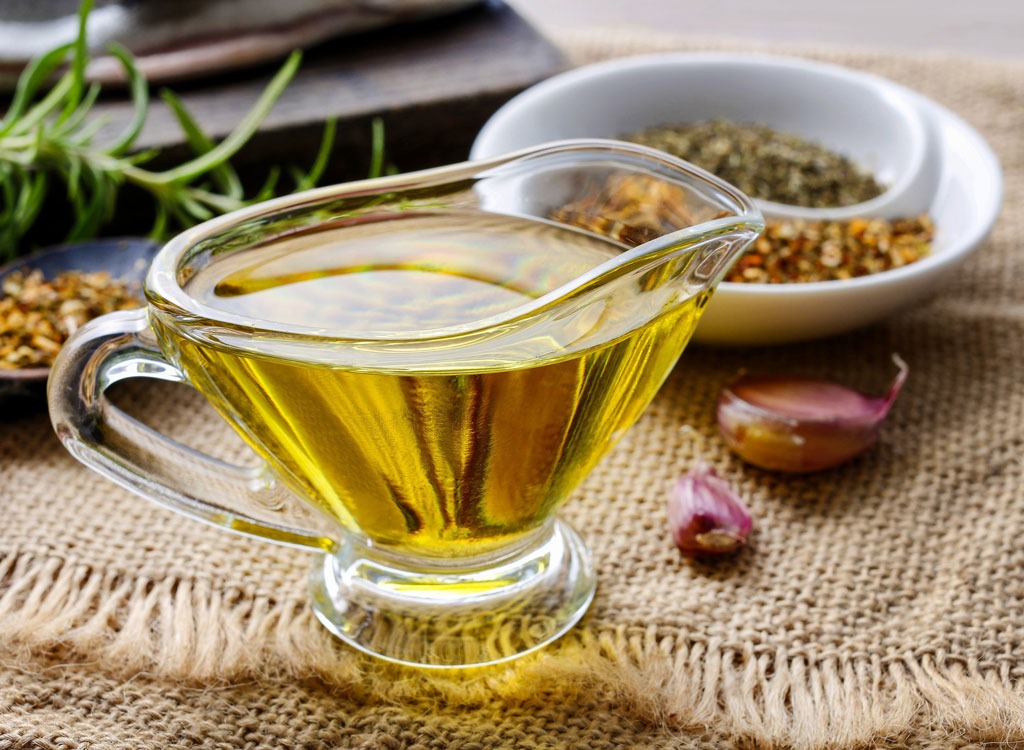
You can find some really good deals when you buy a store brand olive oil, like the 365 Everyday Value California Extra Virgin Olive Oil from Whole Foods. It's 100% Californian, made in small batches, cold pressed, unfiltered, Non-GMO Project Verified and certified by the North American Olive Oil Association—and it's only $7!
Canned Olives
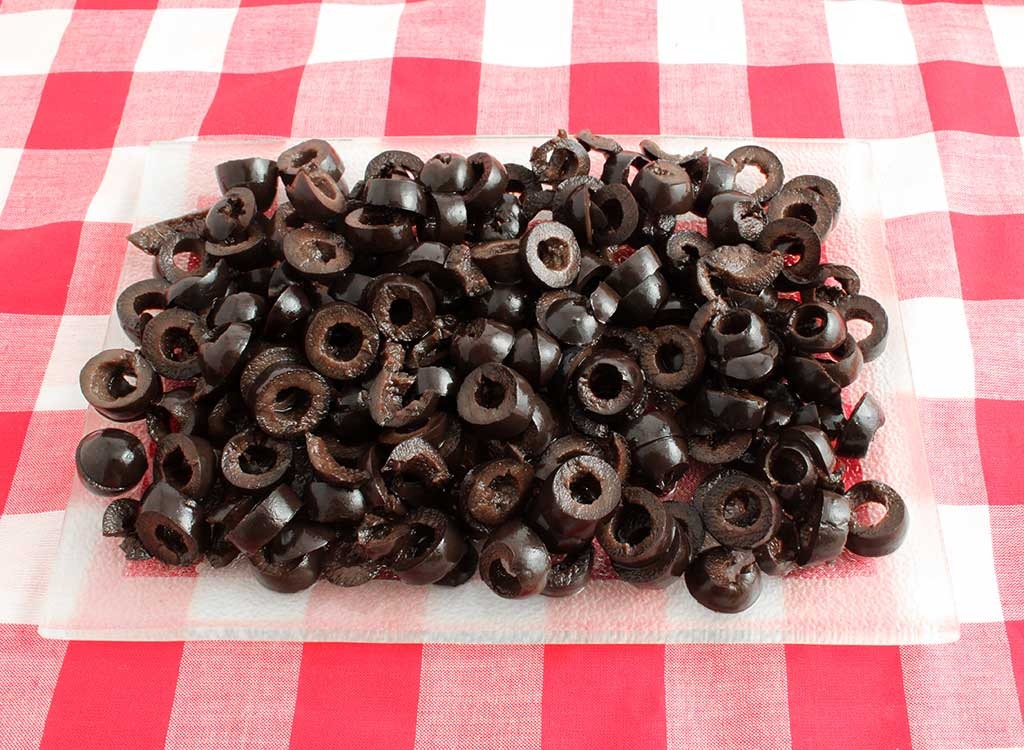
In tandem with the aforementioned olive oil: if you want high-quality olives at a lower price, 365 Everyday Value Large Pitted Black Olives are a great option. These generic olives come in non-BPA lined cans, are Non-GMO Project Verified and have no added preservatives. There are just three ingredients: olives, water, and salt.
Chia Seeds
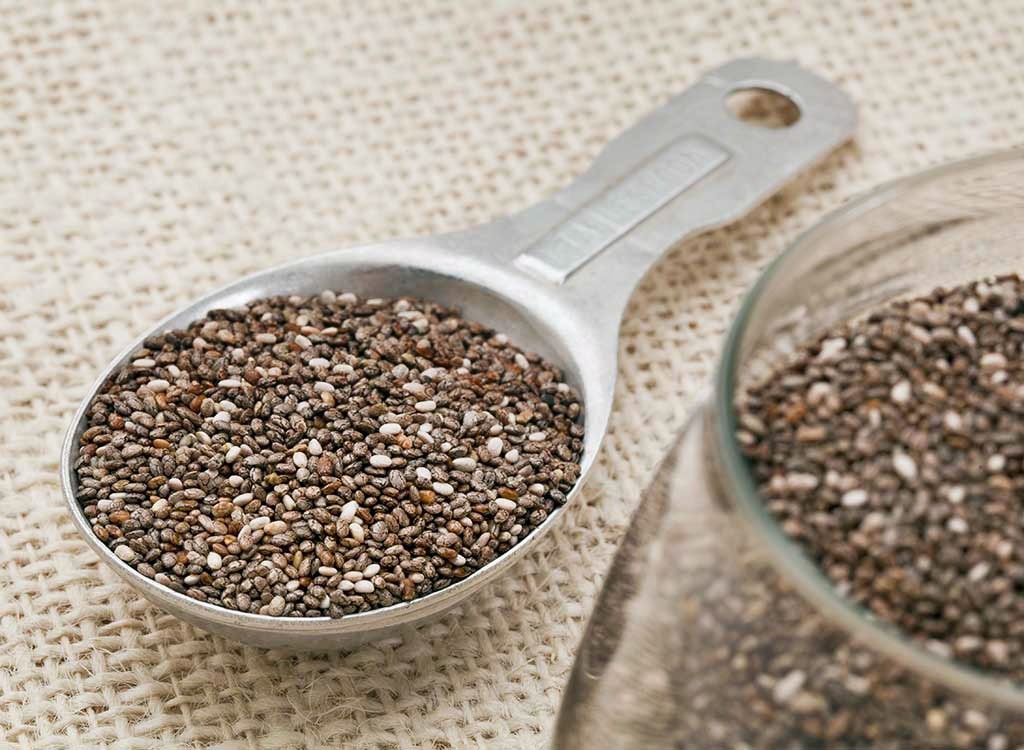
"Chia seeds, generic or brand name, pack a nutritional punch with omega-3 fatty acids, antioxidants, and both soluble and insoluble fiber," say The Nutrition Twins. "Sprinkle them in your yogurt, smoothies, or cereal. Buy them in bulk and you'll save a lot of money compared to name brands."
Pantry Staples
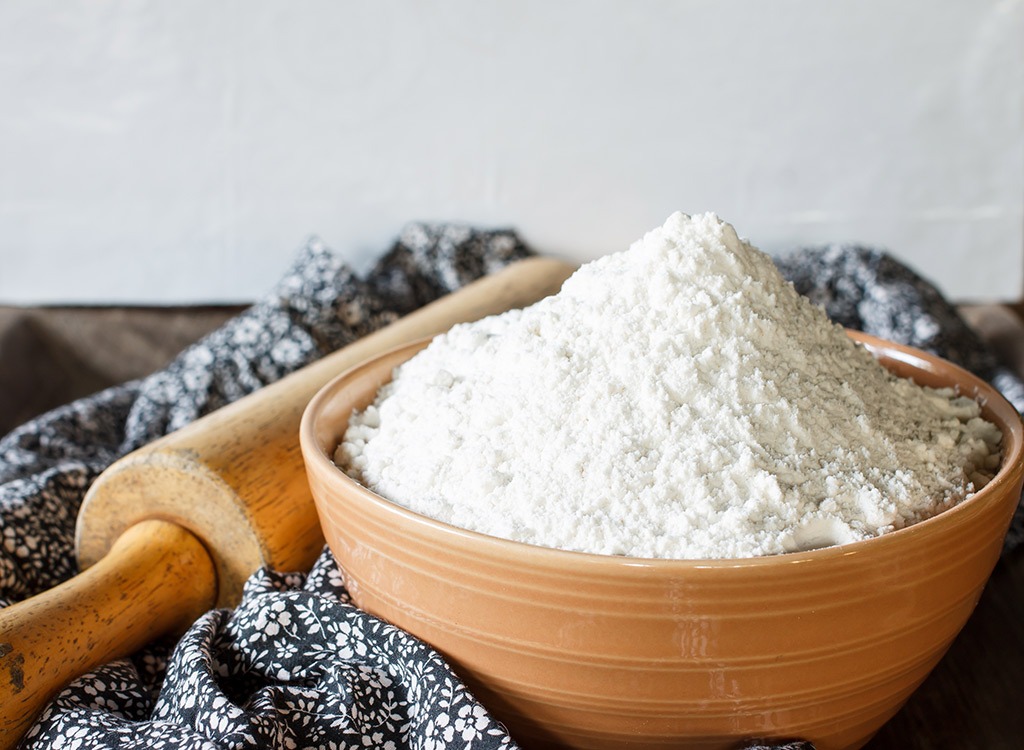
According to Goldberg, baking staples are good to buy generic because they usually contain a single ingredient. She singles out items like flour, sugar, and as well as spices like pepper, all of which she says are completely fine to buy in generic form.
Fresh Vegetables

Buying non-branded eggplants, carrots, and celery are no different from a nutritional standpoint from their brand-name counterparts—as long as they're stored properly. "In fact, when it comes to fresh vegetables, depending on where you buy your produce, buying generic may be better in terms of price, taste, and nutrition," says Bella. Try places like Trader Joe's, which sells them in huge quantities and are constantly replenishing supplies to offer the consumer the freshest possible products.
Nondairy Beverages
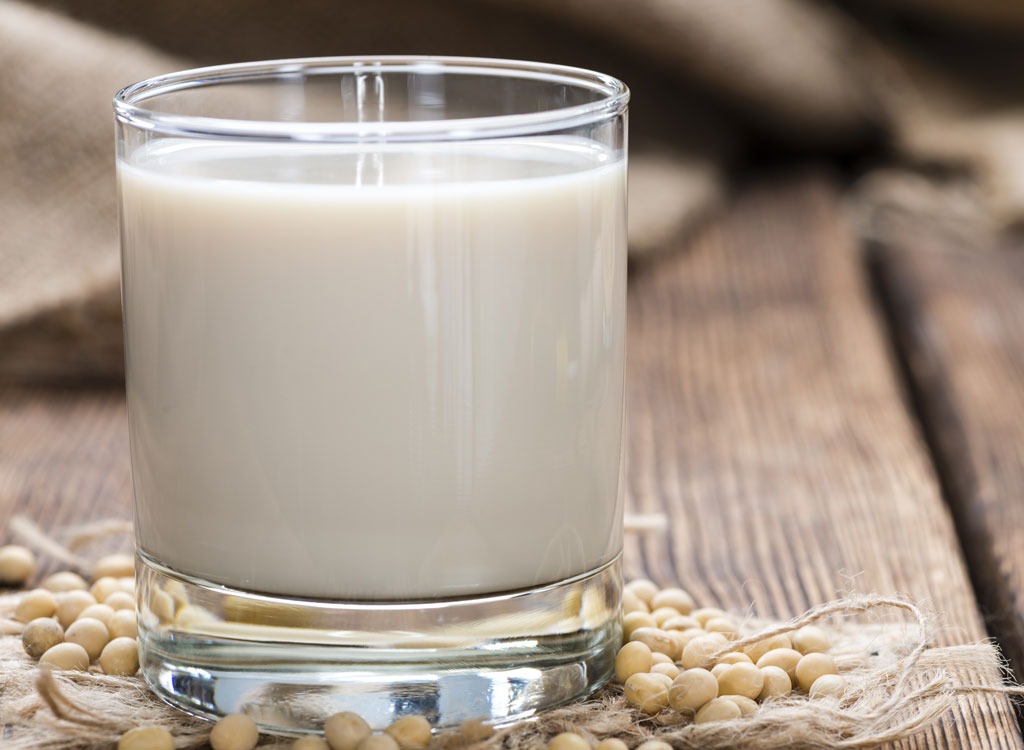
Rice, almond, coconut, and soy milk are often comparable in generics as they are to brands according to Goldberg. "These can be found both sweetened and unsweetened in both shelf stable and refrigerated options."
Condiments

Mustard, ketchup, and other condiments are perfectly fine to buy generic. Whole Foods' store brand, for example, offers organic options made without added preservatives, artificial colors, and flavors. These products even include an organic spice blend—allspice, clove, red pepper, and paprika—for an added dose of flavor. No matter which you opt for, make sure to look for no added sugar.
Pickles
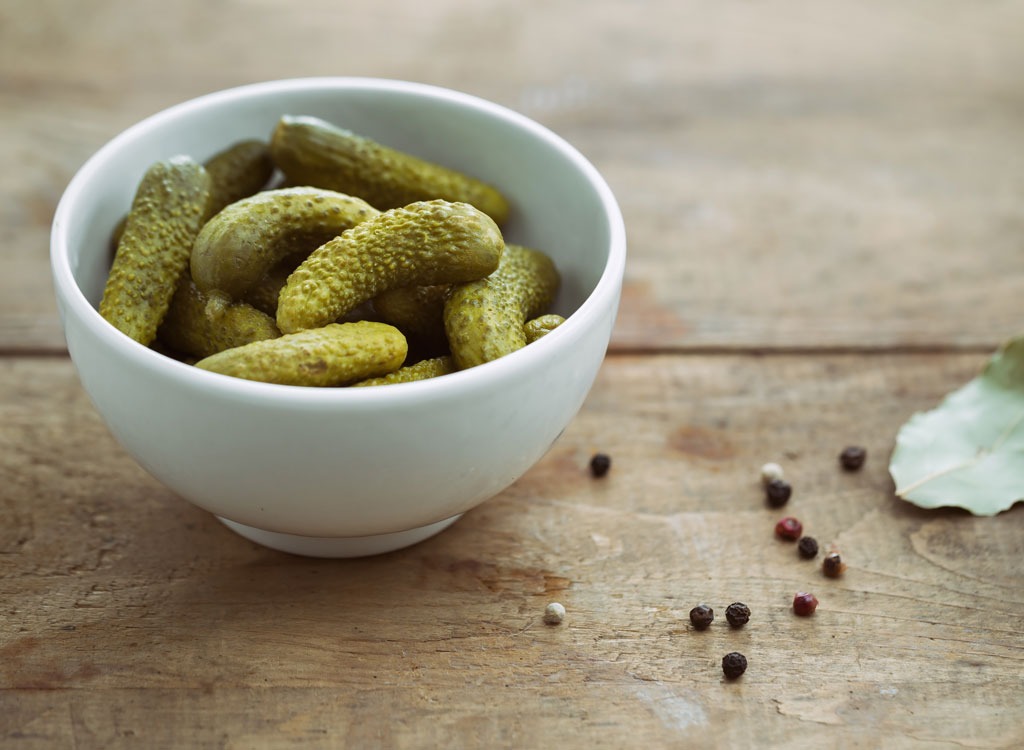
Most grocery aisles are stocked with pickles that have high fructose corn syrup in the ingredients and that includes branded and non-branded varieties. When shopping for pickles, make sure to go for ones made without HFCS and has no added preservatives, artificial colors, or flavors.
Dried Fruits
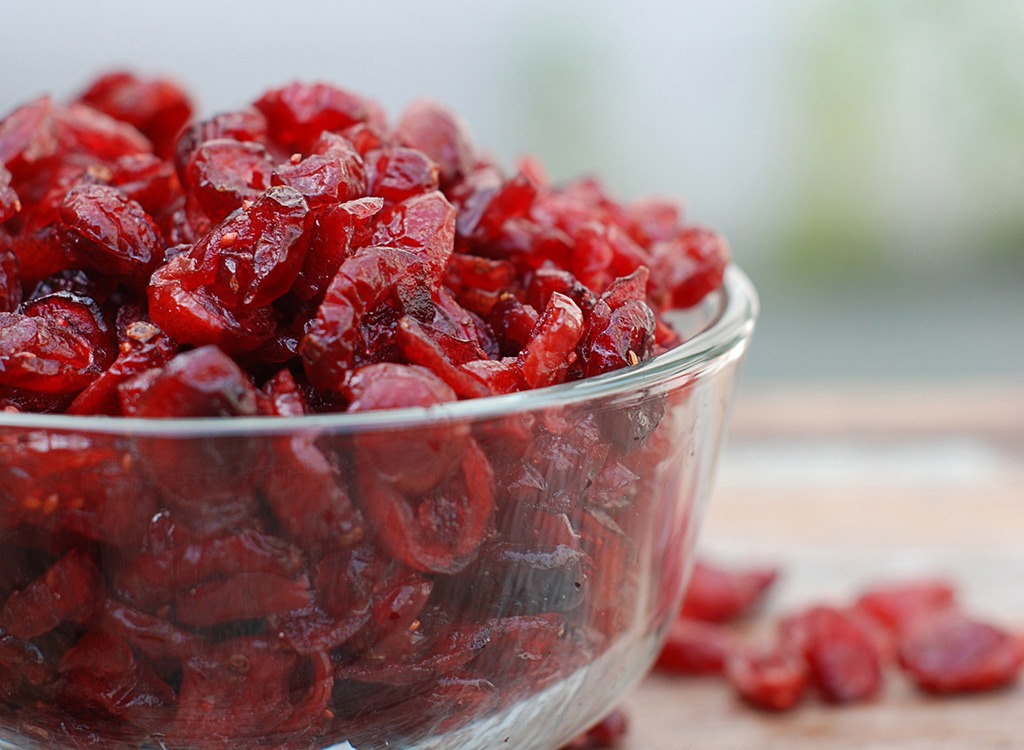
Dried fruits are often considered a health food, but they're actually closer to gummy bears. (Let's call them nature's gummy bears…) High in sugar, they're easy to overeat since all the water has been removed. They also are not low in calories. That said, whether you buy generic or branded ones, there is absolutely no difference; it's way more important to look for dried fruits that have no sugar added than to look at the brand name. (Trust us, they're sweet enough without the added sugar!)
Water

From a nutritional standpoint, water is water. When you're buying a branded water, all you're doing is paying for advertising and marketing costs and the pretty packaging. When necessary, buy a generic water bottle, which will be essentially the same purified water. Otherwise, invest in a filter and a reusable bottle because What Happens When You Don't Drink Enough Water can be seriously bad!
